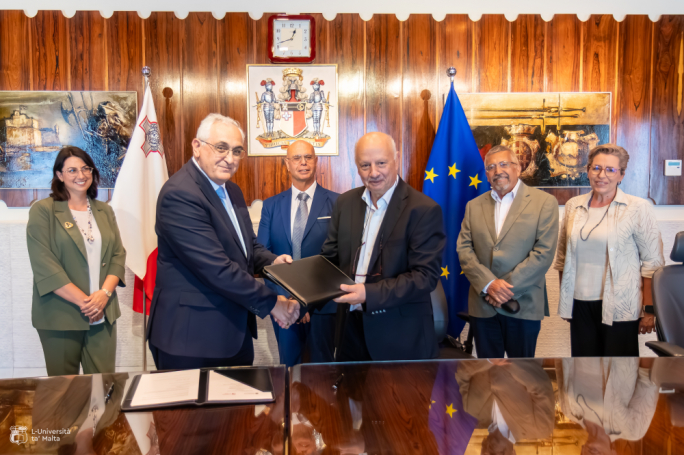'Plan ahead or die' - Malta Enterprise CEO's stark warning to ailing businesses
Malta Enterprise CEO Kurt Farrugia asks whether it makes sense to continue supporting businesses that are unable to survive for more than six months unless they change and diversify

Businesses which do not expect to survive beyond six months need to regenerate their model if they are to survive in the future, when government aid might not be forthcoming, the CEO of Malta Enterprise has warned.
Kurt Farrugia told BusinessToday that businesses should plan ahead and revise their business model to ensure their viability without any government aid.
“At the moment, because of the circumstances brought about by COVID-19, direct cash aid has proven fundamental for man businesses,” he said. “But they need to understand that in the future, those businesses that are not prepared will die.”
Farrugia said it was high time to determine if government should continue to assist those businesses that would not survive for more than six months without such direct assistance.
He stressed there was no current plan on the table to stop such assistance, but said all major stakeholders had expressed similar concerns.
Assistance in the future would probably take the form of schemes, as those currently offered by Malta Enterprise, which incentivise business regenration, investment in technology and staff retraining.
Farrugia was reacting to the findings of a survey commissioned by the Chamber of SME’s among its members that showed how 7% could only survive in the current circumstances for another three months, while 18% could only survive for six months. Only a quarter of SMEs said they could survive beyond 12 months.
He said the wage support scheme introduced earlier this year when the pandemic hit helped businesses survive and retain employees. He said this was important because it ensured businesses remained alive.
The scheme in its current form was extended until the end of December and a revamped scheme will kick-in in January and be maintained until March.
Farrugia said the new wage support scheme would be announced shortly.
Amongs its schemes, Malta Enterprise providing up to €5,000 for every business, allowing them to embark on a reengineering exercise with approved companies.
The aim is to help businesses make key changes in the way they operate in order to address the challenges brought by the pandemic.
Government has already assisted businesses to set up teleworking systems; however a number of businesses, particularly small enterprises, might need professional assistance to put together new business plans and to explore new technological solutions.
Other schemes, such as MicroInvest, offer grants and tax credits.
But, even more importantly, Malta Enterprise also offers assistance to businesses for employee reskilling and upskilling, covering 50% of training costs.
This could be fundamental to ailing businesses as well employees in stagnant industry sectors who, once retrained, could transition to more resilient industries, instead of depending indefinitely on government aid to cover part of their wages and prop their workplace up.
“The fact is that business need to realise that someday they will no longer be able to depend on government cash for their continued existence,” Farrugia said. “When that day comes, it will be sink or swim, and businesses need to be prepared to face the challenge.”
Survey findings
When presenting the survey results yesterday morning, Chamber CEO Abigail Mamo said the overwhelming feeling among businesses was one of uncertainty.
Giving an overview of the survey findings, she said that 71% of members flagged uncertainty as a concern, while 53% were worried about having a very low turnover.
A third of SMEs were worried that government aid would stop, and 30% of SMEs said their principle concern was a ‘non-existent market’.
Rental costs, piling debt, difficulties to pay employees and increasing bank-related costs were other worrying factors, Mamo noted.
The survey found that 55% of SMEs experienced a decrease in turnover of 30% and more throughout this year.
Another 16% saw their turnover decrease by 20%, while only 10% reported that turnover remained the same as last year.
Mamo said that when asked for a forecast in six months, 50% of SME owners expected their companies to ‘remain the same’, 18% expected a shift towards ‘selling and online marketing’, 18% expected to reduce employees and 13% expected to downsize their operation.








